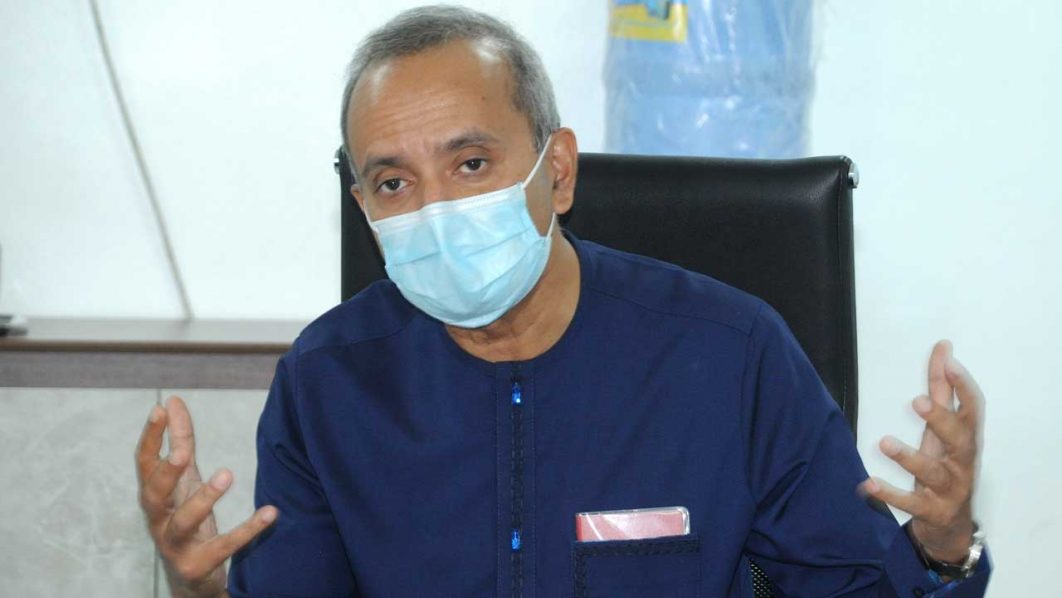
World Bank’s Nigeria Country Director, Shubham Chaudhuri, has said the country needs urgent regulatory and policy reforms at the Federal and State levels to unlock additional 6.7 per cent yearly growth over the next 20 years.
Chaudhuri disclosed this during the Indian Professionals Forum (IPF) Nigeria interactive session on: “Driving Business in 2023: Business As Usual or Business Unusual,” held in Lagos at the weekend.
He said Nigeria, with a population of over 200 million and a young entrepreneurial population, as well as a dynamic private sector and nominal Gross Domestic Product (GDP) of $440 billion in 2021, has the potential to be a giant on the global stage.
Chaudhuri said Nigeria must prioritise reforms for short and medium term on macroeconomic, institutional enablers and investment accelerators. He said the country must adopt a single market reflective exchange rate, noting that despite a surge in oil export revenues, foreign exchange reserves held at the Central Bank of Nigeria (CBN) are falling and have declined in 2022, while the exchange rate in the parallel market has surged.
Chaudhuri said Premium Motor Spirit (PMS) subsidies disproportionately benefit richer households and certainly leaks to neighbouring countries. He said Nigeria’s petrol prices are the lowest in the region, thereby creating strong incentives for smuggling to neighbouring countries while benefiting mainly the rich.
Chaudhuri also charged Nigeria to increase non oil-revenue by raising VAT and excise rate and strengthening tax administration. He said Nigerian government revenues are one of the lowest in the world and have declined over the last decade, noting that this is the key risk to fiscal and debt sustainability.
Chaudhuri said oil and gas revenues are falling despite higher oil prices, adding that only significant efforts to boost non-oil revenues have prevented an even worse fiscal situation.
The World Bank country director also charged Nigeria to contain inflation by reducing Federal Government’s recourse to CBN financing. He said inflation reached its highest level in 17 years in October 2022, increasing poverty among additional five million people as well as food security concerns.
Chaudhuri said the average prices of locally produced staples have increased faster than average inflation. He urged Nigeria to facilitate trade and boost domestic value added by removing import and foreign exchange restrictions as well as transport connectivity by reducing interstate transportation cost.
Chaudhuri urged Nigeria to increase access to finance by strengthening institutional infrastructure for financial intermediation, noting that government expenditures are the lowest globally.
He stressed that the country’s public investment spending is insufficient to close the infrastructure gap, noting that at the current rate of capital spending, it would take 300 years to close Nigeria’s infrastructure gap.
Chaudhuri also urged Nigeria to boost power generation by investing in infrastructure to reduce technical and commercial losses, adding that lack of reliable power has stifled economic activity.
He said yearly economic losses from lack of reliable power are estimated to be in the range of four to seven per cent of GDP or around $ 29 billion.
Also speaking, the Dean of Lagos Business School (LBS), Prof. Chris Ogbechie, said the government can generate employment and increase the earning capacity of the 90 million people living in poverty in the country through the low hanging fruit in agriculture.
He said the country spends so much on importing foods when there are arable lands to engage the people to grow foods and make Nigeria an export nation, as well as generate employment.
While presenting a paper titled: “Driving Business Success in 2023 – Strategic Imperatives,” Ogbechie, who is a Professor of Strategic Management, said high Inflation, unemployment and interest rate as well as depreciating exchange rate and massive debt crisis are driving cost of operations in the business environment in 2023 in the wrong direction.
He said for businesses to navigate through the complexity, there must be directional beacons and purpose, relevant strategy, business model reinvention, visionary leadership, cost containment, customer-led innovation and stakeholder engagement.



